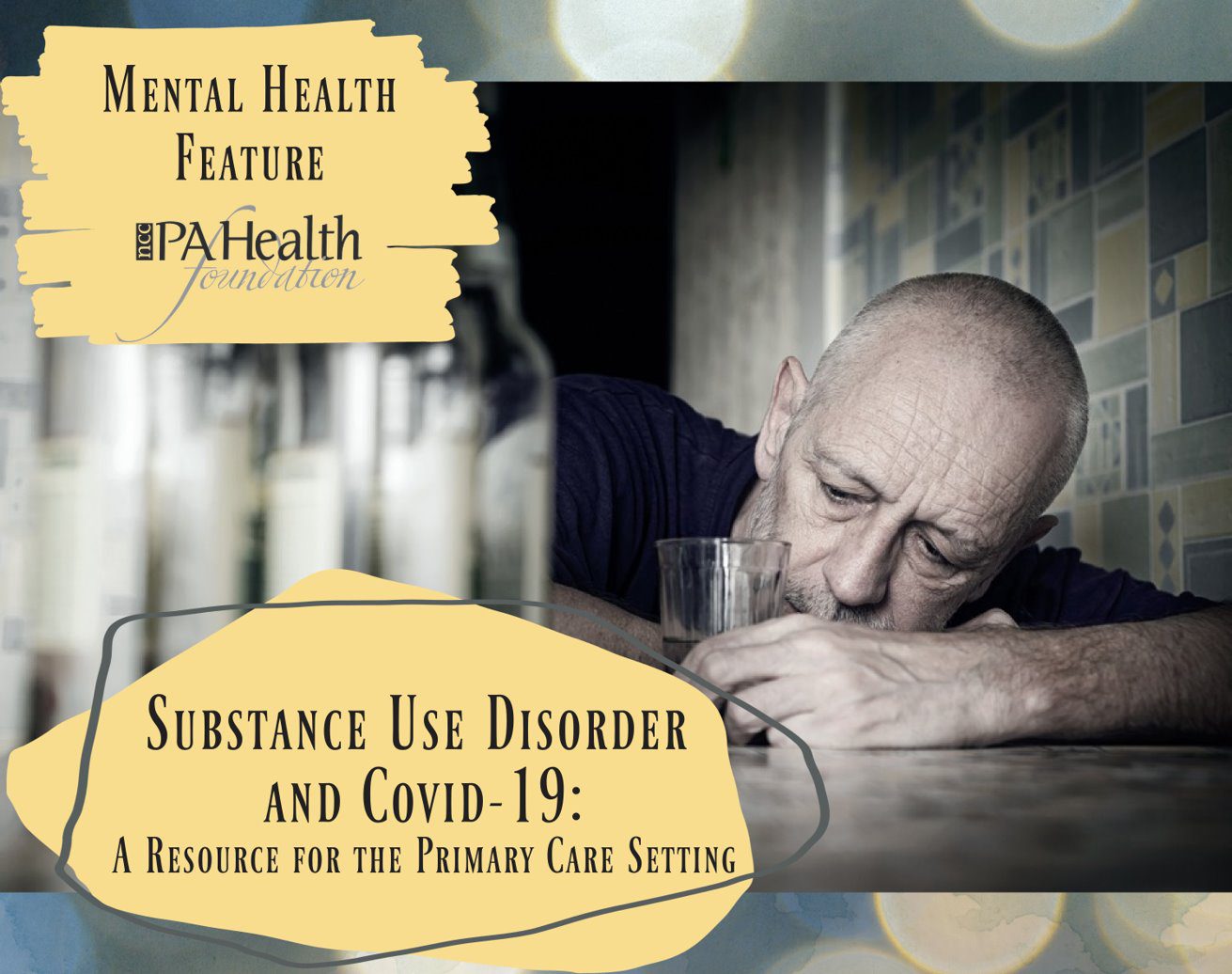SUD & COVID-19: A Resource for the Primary Care Setting
With the onset of the Covid-19 pandemic, we have seen an increase in use and worsening of outcomes in our patients struggling with substance abuse. A national study recently published in JAMA found that the overall frequency of alcohol consumption increased by 14% among adults over age 30, compared to the same time in 2019. Symptoms of depression and anxiety have become more prevalent with increase in isolation and lack of access to treatment like AA and other social supports; key components in managing substance use disorder. This lack of access to care increases our patients risk of relapse and death.
Patients with substance abuse problems are most often seen for the first time in a primary care setting. Being able to address this population is especially important with the growing need secondary to the pandemic. Aside from an increase in substance abuse and mental health symptoms, you may notice worsening of their comorbid diseases like hypertension or diabetes due to lack of self-care or medication noncompliance. This may be the first sign your patient is struggling.
Recognizing substance abuse is easy when your patient asks for the help. It can be difficult to treat when your patient is in denial of their problem. The use of screening tools is a simple way to gauge the severity of their use and willingness for change. It allows you to start the conversation and offer resources. Sometimes less is more when it comes to treating this population. Eliminating, minimizing or monitoring use of habit-forming medication you may be prescribing is crucial. Long term treatment is standard of care and primary care providers must be aware of the resources available for their patients especially during these tumultuous times.

Resources:
- Virtual Recovery Resources for Substance Use and Mental Illness Includes links to online meetings and recovery support offered by various organizations and support groups
- NIAAA’s Alcohol Treatment Navigator provides information on accessing treatment for alcoholism through telehealth.
- National Suicide Prevention Lifeline at 1-800-273-TALK (8255) or 988, or text the Crisis Text Line (text HELLO to 741741). Both services are free and available 24 hours a day, seven days a week. The deaf and hard of hearing can contact the Lifeline via TTY at 1-800-799-4889. All calls are confidential.
References:
- Diabetes Metab Syndr, COVID-19 and addiction: https://www.ncbi.nlm.nih.gov/pmc/articles/PMC7282772/
- Michigan Medicine – Department of Psychiatry, Addicition, Substance Use, and Recovery durign the COVID-19 Pandemic: https://medicine.umich.edu/dept/psychiatry/michigan-psychiatry-resources-covid-19/specific-mental-health-conditions/addiction-substance-use-recovery-during-covid-19-pandemic
- JAMA, Changes in Adult Alcohol Use and Consequences During the COVID-10 Pandemic in the US: https://jamanetwork.com/journals/jamanetworkopen/fullarticle/2770975
- JAMA, Role of the Primary Care Physician in Problems to Substance Abuse: https://jamanetwork.com/journals/jamainternalmedicine/fullarticle/485027
- National Institute of Drug Abuse, COVID-19 and Substance Use: https://www.drugabuse.gov/drug-topics/comorbidity/covid-19-resources

